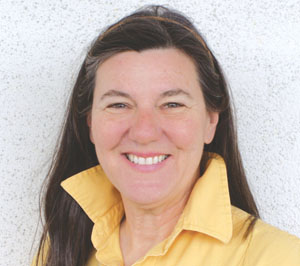THE SONIC BOOMER
The little guy is finally learning to talk. He’s 21 months old and has been communicating via sign language and shouting up until now.
The sign language was my daughter’s idea. She read that babies can communicate much earlier through signing than through vocalization, so we all had to learn it. Not spelling words out letter-by-letter, thank goodness, but basic signs for “thirsty,” “egg,” “thank you,” “sorry” — that kind of thing.
The shouting was Skippy’s idea. He would just open up and roar, and people at the grocery store would run up to us from three aisles over and say, “That huge sound came out of that little baby?” And we would say, “What?!” because our ears were still ringing. Then we would try to communicate with them using sign language, but not too many people in the grocery store know it.
Several months ago, we adults finally tired of being bossed around by this little emperor and quit responding to his demands. He, at the same time, gave up trying to teach us his language and succumbed to the idea of using words — well, parts of words.
Skippy is using some weird form of shorthand in which he utters only the first syllable of any given word. “Bee” is particularly popular.
“Bee” means — first and foremost — binkie. His pacifier is the most important thing in his life if he is sleepy or hurt, and the plaintive request for a “Bee?” has often launched a frantic full-house search. We keep 18 or so lying around, but they’re never where we need them.
“Bee” also means bee, as in bumble. But, more broadly, it seems to mean “insect,” as any number of wasps, ants, bugs and beetles are included. Who knew what he was looking at when we first pointed out a bumblebee.
“Bee” also means blanket, baby and baby doll, just to make things more confusing.
“Mow” means mow, as with the lawn, but “maw” means moth.
There was quite a bit of excitement in the kitchen last Thursday when I went to pick up a piece of dirt and it turned out to be a moth. Not expecting fuzziness, I screamed and leapt back, which brought the ever-curious Skippy toddling over as fast as he could go. The moth then took off, with both of us chasing it and Skippy repeatedly announcing at the top of his lungs that it was “hi” (hiding).
“Maw! Hi! Maw! Hi! Maw! Hi!”
“OK, OK! I get it!”
“Maw! Hi!”
“I’m looking!”
“Maw! Hi!”
The moth ultimately outsmarted us by hiding in the exercise bike, someplace it knows no adult will ever venture. The chase was over.
Other well-used words are “up” when he wants to be lifted up and “dow” when he wants to be put down. “Up” and “dow” are going to kill me because they are often used in rapid succession and with no apparent rhyme or reason. I try to reason with him, but that brings us to the most popular word in the tiny repertoire of any 2-year-old — “no.” And although Skippy says “yess” (with the extra s) with precision and clarity, “no” is the word we hear most often. He does seem to think about it first, however, as evidenced below.
We stopped in at an estate sale and starting looking through the rooms.
Room No. 1 — Skippy looks around and says, “Ummmmmm, no.”
Room No. 2? “Ummmmmm, no.”
Room No. 3? “Ummmmmm, no.”
I was getting frustrated because he generally has a pretty good eye for antiques, but then he looks at me quite seriously and says “toys” clear as a bell.
So there’s another word he knows.






